Marriage & Motherhood
Venues
Fitness
Corporate Events
Wedding Planning Advice
CATEGORIES
Search
With all of the events I've had the pleasure of being a part of for over a decade...I have so many experiences to share with you! While here, you may find inspiration for your wedding day, corporate function or the things I like to get into when I'm not planning like a BOSS!
Hey ya'll! Welcome to my blog!
SwaLarue Chronicles
welcome to the
Nigerian Nuptial: A Comprehensive Guide to Planning a Traditional Nigerian Wedding
Filed in: Uncategorized, Wedding Advice
Nigerian weddings are vibrant, culturally rich, and deeply symbolic celebrations that honor age-old traditions. Planning a traditional Nigerian wedding involves meticulous attention to customs, rituals, and community involvement. Here is a comprehensive guide to help you navigate the intricacies and create a memorable event that reflects the beauty of Nigerian heritage.
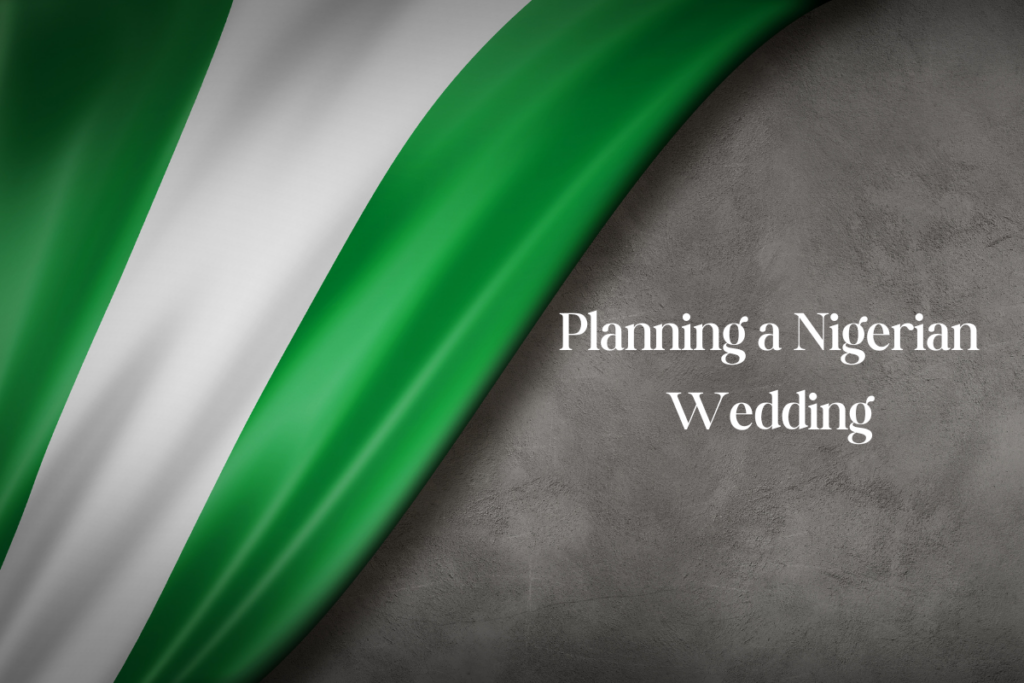
1. Understanding the Diversity of Nigerian Cultures:
Nigeria is a diverse nation with numerous ethnic groups, each having its own unique customs and traditions. Before planning, identify the specific cultural background of the bride and groom. Yoruba, Igbo, Hausa, and other ethnic groups have distinct wedding practices that should be respected and incorporated into the ceremony.
2. Traditional Wedding Attire:
Nigerian traditional wedding attire is a significant aspect of the celebration. For Yoruba weddings, the bride typically wears an elaborate outfit called the “iro and buba,” while the groom adorns the “agbada” or “buba and sokoto.” In Igbo weddings, the bride often wears a stunning “george” wrapper and blouse, while the groom wears an “isiagu” or “chieftaincy” outfit.
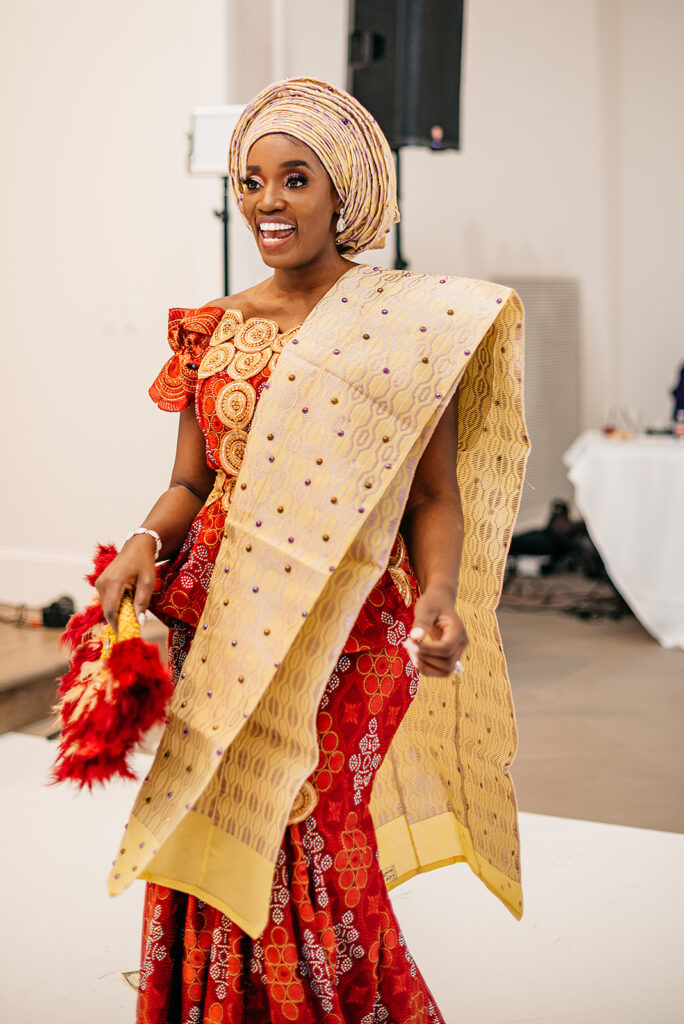
3. Bridal Accessories:
Pay attention to traditional accessories. Gele (headtie), beads, coral necklaces, and traditional hairstyles are essential for the bride. The groom may wear a “fila” (cap), coral beads, and other symbolic accessories.
4. Incorporate Cultural Colors and Symbols:
Each Nigerian culture has distinct colors and symbols. Incorporate these into the wedding theme, decor, and attire. For example, Yoruba weddings often feature the color white, symbolizing purity, while Igbo weddings may incorporate red, symbolizing the couple’s love.
5. Traditional Wedding Invitation Cards:
Design wedding invitations that reflect cultural symbols and colors. Include proverbs or greetings in the local language to add a personal touch. This helps set the tone for the traditional celebration.
6. Traditional Marriage List (Engagement List):
Prepare a comprehensive marriage list that includes items and gifts required for the traditional marriage ceremony. This list varies across cultures but typically includes items like kola nuts, wine, palm wine, and other symbolic gifts.
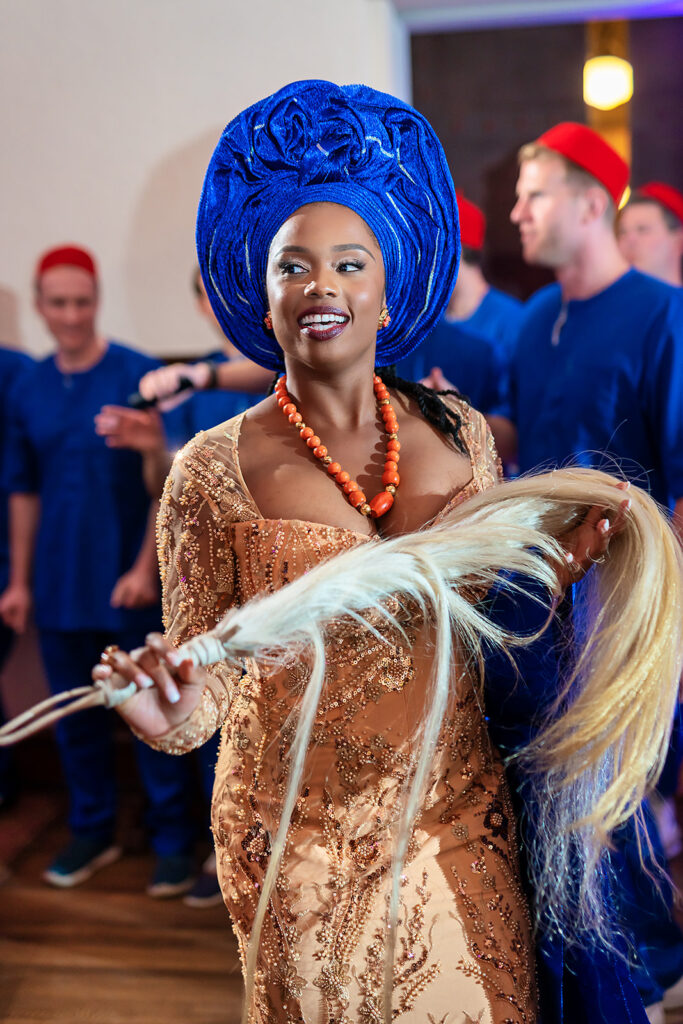
7. Engagement Ceremony:
The engagement ceremony is a crucial part of a Nigerian wedding. It involves the groom’s family formally asking for the bride’s hand in marriage. The bride’s family may present the marriage list, and negotiations may take place. This ceremony is an opportunity to strengthen familial bonds.
8. Traditional Ceremonial Rites:
Understand and incorporate specific ceremonial rites related to the chosen ethnic group. This may include libation, breaking of kola nuts, and other rituals that symbolize unity, blessings, and commitment.
9. Cultural Entertainment:
Arrange for traditional music, dances, and performances that showcase the cultural richness of Nigeria. Traditional drummers, dancers, and singers can add a vibrant and authentic touch to the celebration.
10. Community Involvement:
Nigerian weddings are community celebrations. Involve close family members and community elders in the planning process. Seek their guidance and blessings to ensure the event is culturally respectful and inclusive.
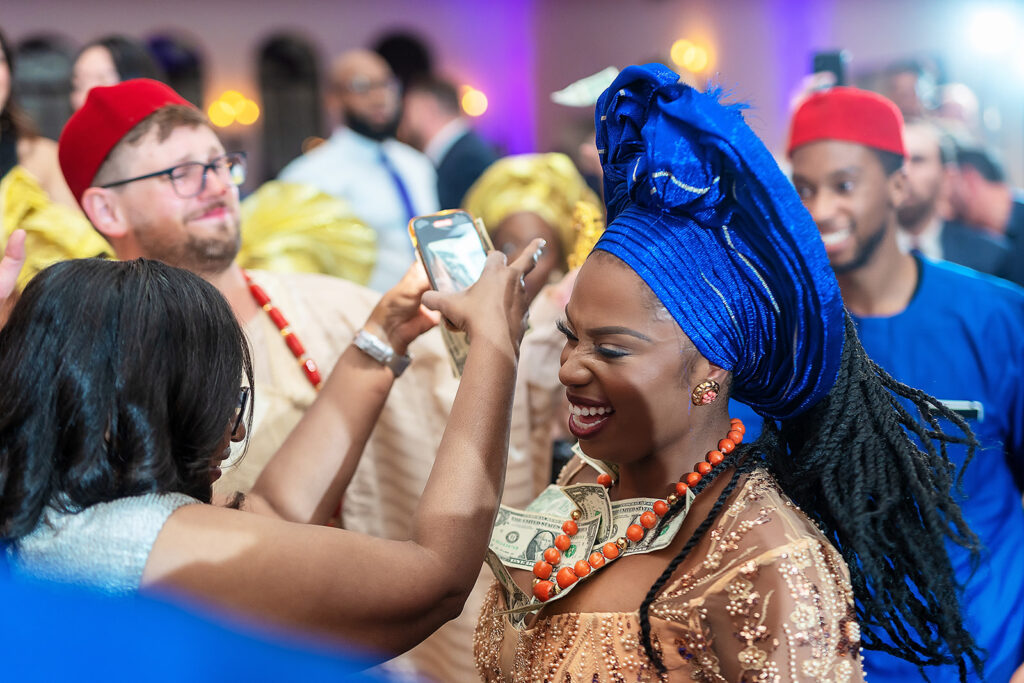
11. Photography and Videography:
Hire experienced photographers and videographers who understand the importance of capturing cultural nuances. Ensure they are familiar with traditional ceremonies and can document them with sensitivity.
12. Culinary Traditions:
The food at a Nigerian wedding is a highlight. Incorporate traditional dishes from the couple’s ethnic background. From jollof rice to pounded yam and egusi soup, the menu should reflect the richness of Nigerian cuisine.
13. Traditional Wedding Cake:
Design a wedding cake that incorporates cultural symbols, colors, or motifs. This adds a personal and cultural touch to the sweet finale of the celebration.
14. Gift Exchange:
Plan for the exchange of gifts between the families of the bride and groom. This is a symbolic gesture that solidifies the union and expresses gratitude.
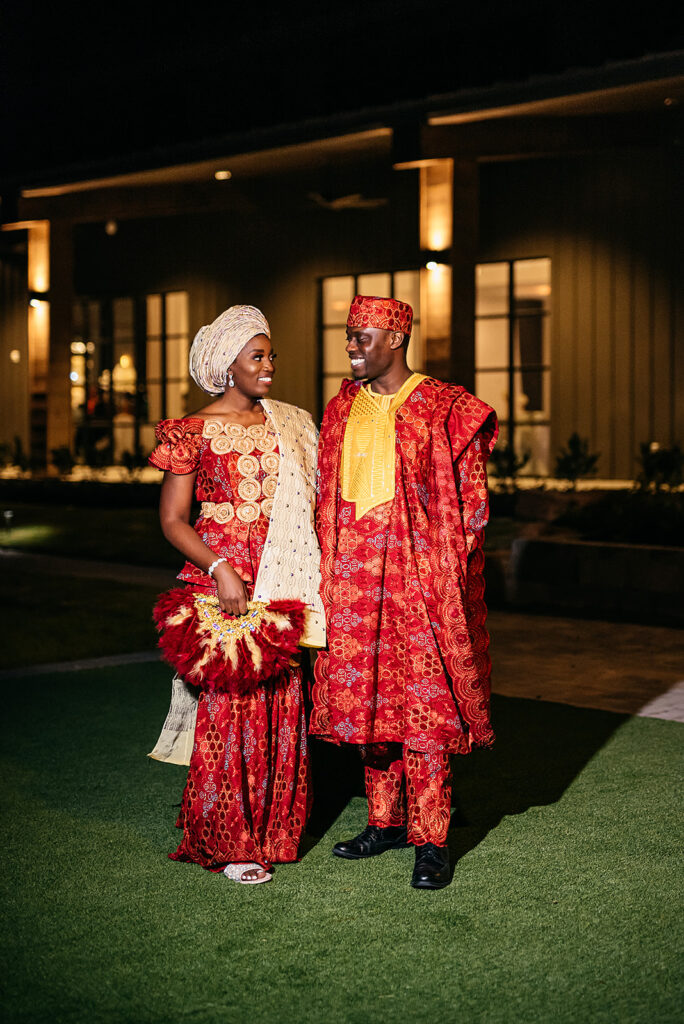
15. Post-Wedding Celebrations:
After the traditional ceremony, plan for post-wedding celebrations such as the “outing” or church ceremony. Each has its unique customs and traditions that contribute to the overall celebration.
Planning a traditional Nigerian wedding involves immersing oneself in the richness of cultural practices and customs. By understanding the diverse traditions, incorporating cultural elements into attire, decor, and ceremonies, and seeking community involvement, couples can create a wedding celebration that not only honors their heritage but also leaves a lasting imprint of cultural pride and unity.
We love assisting with the complexities of Nigerian Nuptials and would be honored to help with yours. Send us an email to find out how we can help.
comments +